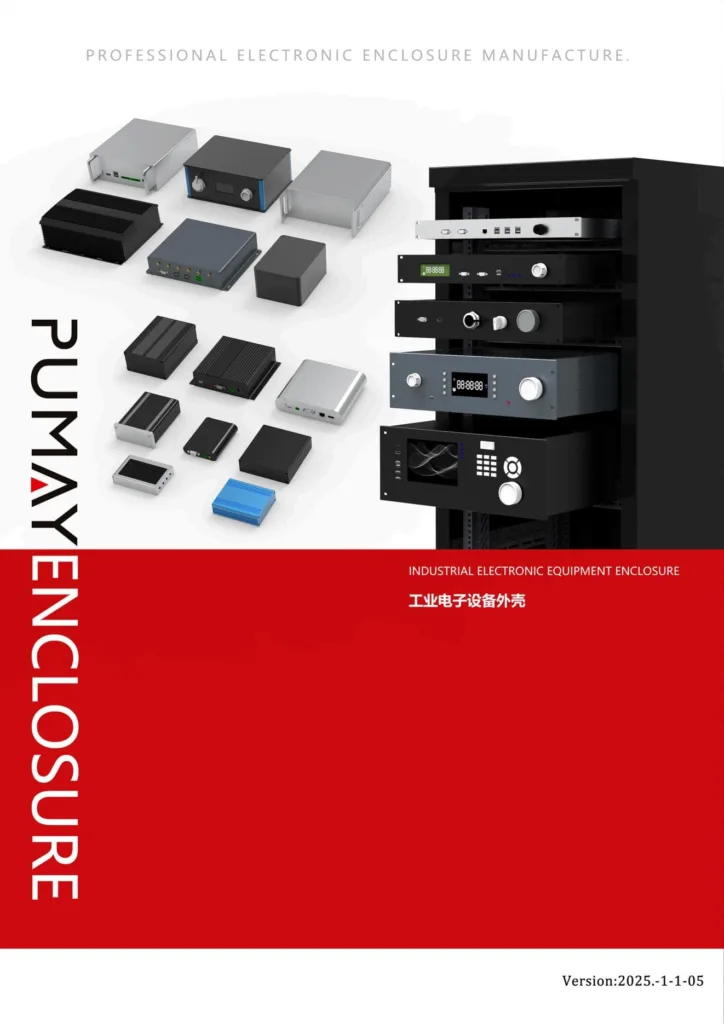Worried about dust or water wrecking your sensitive electronics? Unprotected devices can fail in harsh conditions, leading to costly repairs and downtime. An IP68 enclosure1 offers a robust solution.
An IP68 enclosure is a housing designed to provide the highest level of protection against dust ingress (dust-tight) and long-term immersion in water, typically beyond 1 meter depth, under conditions specified by the manufacturer.
 "IP68 Enclosure Water Test")
"IP68 Enclosure Water Test")
Now that we understand the basic definition, it's clear why this rating is so sought after. When I founded PUMAYCASE, our mission became "Enclosing Innovation, Delivering Precision." For engineers like Jeff, who regularly integrate sensitive modules into compact enclosures destined for challenging field environments, a rating like IP68 isn't just a number. It's peace of mind. It means their innovative designs are truly protected. Let's explore what this superior protection really involves.
Is IP68 fully waterproof2?
Does "IP68" mean your device can survive anything water-related? Misunderstanding this term can lead to damaged equipment and voided warranties. Clarity is key here.
IP68 indicates a very high level of water resistance3, often termed "waterproof" for specific conditions. It means the enclosure can withstand continuous immersion beyond 1 meter, but the exact depth and duration are set by the manufacturer. It's not unlimited.
 "IP68 Waterproof Clarity")
"IP68 Waterproof Clarity")
Let's dive deeper into what "fully waterproof" means in the context of IP68. The term "fully waterproof" can be a bit misleading because it sounds absolute, like it could survive at the bottom of the ocean forever. The IP rating system, specifically the "8" in IP68, provides a more precise engineering definition. The standard says that for an IPX8 rating, the equipment is suitable for continuous immersion in water under conditions which shall be specified by the manufacturer. Crucially, these conditions must be more severe than those for IPX7 (which is immersion up to 1 meter for 30 minutes). So, one manufacturer might test and certify their IP68 enclosure for 1.5 meters for 30 minutes, while another might test for 3 meters for 1 hour. Both are valid IP68 ratings because they exceed IPX7 and the conditions are stated. At PUMAYCASE, when we design an enclosure intended for IP68, our precision CNC machining ensures that gasket grooves are perfect, mating surfaces are flawlessly flat, and all seals compress uniformly. This meticulous manufacturing is what allows our aluminum enclosures to reliably meet the specified IP68 conditions. For Jeff's field instruments, this means they can trust the enclosure to protect critical electronics even in very wet or dusty environments.
Is IP68 waterproof the same as water resistant?
Confused by "waterproof" versus "water resistant" marketing claims? These terms can be vague, but IP ratings offer concrete standards. Understanding the difference is vital.
IP68 signifies a high degree of "waterproof" under specified conditions, which is a much stronger claim than simply "water resistant." "Water resistant" is general; IP68 is a specific, tested standard.
 "Waterproof vs Water Resistant")
"Waterproof vs Water Resistant")
Let's dive deeper into this common point of confusion. "Water resistant" is a broad term. A light jacket might be water resistant, meaning it can handle a brief shower. However, it won't keep you dry in a downpour. In electronics, many devices claim to be water resistant, which might mean they can survive accidental spills or light rain. The IP Code, on the other hand, provides a standardized way to classify the degree of protection. IP68 represents a very high level on this scale. The "6" means it's totally dust-tight. The "8" means it's protected against continuous immersion in water beyond 1 meter, with the exact depth and duration specified by the manufacturer. So, while an IP68-rated device is indeed highly water resistant, the term "waterproof" is appropriately used to describe its capability under those specific, defined, and tested immersion conditions. I've seen many engineers, including those like Jeff, grapple with this. Sometimes a project only needs protection against splashes (say, IPX4 or IPX5), and specifying IP68 would be over-engineering and potentially add unnecessary cost. Part of our mission at PUMAYCASE is to help demystify these ratings so clients choose the right level of protection for their specific application, ensuring their ideas are protected with precision and efficiency.
Can you swim in IP68 waterproof?
Dreaming of taking your IP68 device for a dip in the pool? While it sounds tempting, there are important details to consider before you dive in.
For many consumer devices like smartphones or smartwatches, an IP68 rating often means you can swim with them, provided you stay within the manufacturer's stated depth and time limits (e.g., 1.5 meters for 30 minutes). For industrial IP68 enclosures, it typically means survival from accidental or temporary submersion, not recreational use.
 "Swimming with IP68 Device")
"Swimming with IP68 Device")
Let's dive deeper into the practicalities of IP68 and water activities. The key here, as always with IP68, lies in the manufacturer's specifications. If a phone maker says their IP68 phone can handle submersion up to 2 meters for 30 minutes, then a quick swim within those limits should be fine. However, it's important to remember a few things. These tests are usually conducted in fresh, still water. Saltwater in the ocean or chlorinated water in a pool can be more corrosive or affect seals differently over time. Also, high-pressure water, like from a jet ski or a strong faucet, can exceed the pressure limits the IP68 rating was tested for. For industrial enclosures like the aluminum ones we make at PUMAYCASE, the IP68 rating has a slightly different context. When Jeff needs an IP68 enclosure for a field instrument, it's not for swimming. It's to ensure that if the device is accidentally dropped in water, or if it's deployed in an area prone to flooding or heavy washdowns, the critical electronics inside remain safe and operational. Our IP67/IP68 validation reports give him that confidence. I recall learning early in my career about the rigorous testing involved – it’s not just a quick dip, it’s a sustained, pressurized test.
What is the meaning of IP68 enclosure?
Seeing "IP68" on an enclosure spec sheet but unsure what it truly signifies? This code represents a specific, high level of environmental protection for your valuable electronics.
An IP68 enclosure means the housing is totally protected against dust ingress (the "6") and can withstand continuous immersion in water beyond 1 meter deep (the "8"), under conditions defined by the manufacturer.
 "Meaning of IP68 Enclosure Construction")
"Meaning of IP68 Enclosure Construction")
Let's dive deeper into breaking down this important code. The "IP" in IP68 stands for "Ingress Protection" or "International Protection" Marking. It's a standard defined by the International Electrotechnical Commission (IEC).
The first digit, "6", refers to protection against solid particles, like dust and dirt. A rating of "6" is the highest possible for solid particle protection. It means the enclosure is completely dust-tight. To achieve this, no ingress of dust is permitted when tested under vacuum conditions for a specified duration. This is critical for delicate electronics that can be damaged or malfunction if contaminated by fine particles.
The second digit, "8", refers to protection against liquid ingress, specifically water. An "8" rating means the enclosure is suitable for continuous immersion in water. The conditions for this immersion (depth and duration) must be more severe than for IPX7 (which is 1 meter for 30 minutes) and are explicitly stated by the manufacturer. For example, it could be " immersion in 2 meters of water for 1 hour."
At PUMAYCASE, achieving IP68 for our aluminum enclosures relies on several factors working together: precision CNC machining of the enclosure parts and any gasket grooves, high-quality gasket materials, and robust assembly. Our integrated manufacturing line ensures that every step, from cutting the aluminum to the final seal assembly, contributes to this high level of protection. For an engineer like Jeff, this means he can confidently deploy his sensitive instruments even in very demanding outdoor or industrial settings.
What IP rating is 100% waterproof?
Searching for an absolutely "100% waterproof" solution for all conditions? While it's a desirable goal, official IP ratings offer specific, tested levels rather than such an absolute guarantee.
No IP rating is officially defined as "100% waterproof" indefinitely under all possible conditions. IP68 is the highest common standard for combined dust and water ingress protection, indicating suitability for continuous immersion under specific manufacturer-defined conditions.
 "The Quest for 100% Waterproof")
"The Quest for 100% Waterproof")
Let's dive deeper into why the term "100% waterproof" is generally avoided in official standards. "100% waterproof" implies invincibility against water under any circumstance, for any duration, at any depth or pressure. In reality, all materials and seals have limits. Enormous pressures at extreme ocean depths will eventually overcome almost any seal. Certain chemicals in water might degrade seals over long periods. Wear and tear, or damage to an enclosure, can also compromise its water protection over time. The IP rating system, therefore, provides a practical and testable framework. IP68 offers the highest level of protection against water ingress specified within the common IP code structure for enclosures. It means the enclosure has passed rigorous testing for continuous submersion based on conditions agreed upon between manufacturer and user (or as stated by the manufacturer), which must be more severe than IPX7. While it's not an infinite guarantee, for most practical purposes involving protection against rain, accidental submersion, or even planned submersion to specified depths, IP68 is exceptionally robust. At PUMAYCASE, "Delivering Precision" means we engineer and manufacture our aluminum enclosures to reliably meet the specified IP68 criteria, providing our clients like Jeff with the highest practical level of waterproofing for their demanding applications, backed by validation reports. We aim to demystify these ratings and provide solutions that truly protect innovation.
Conclusion
IP68 enclosures offer top-tier dust and water protection under clearly defined conditions. This robust sealing is vital for safeguarding sensitive electronics in demanding environments, ensuring reliability and longevity.
Explore this link to understand how IP68 enclosures safeguard sensitive electronics from dust and water damage, ensuring reliability in harsh conditions. ↩
Discover the nuances of the term 'fully waterproof' in relation to IP68 ratings and learn how it affects your device's protection. ↩
Learn about the specifics of water resistance in IP68 ratings and how it impacts the durability of your electronics in wet environments. ↩





